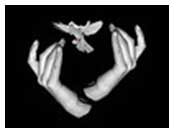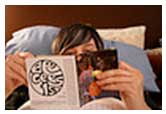Why This is Important
Caring for a seriously ill person is exhausting, even more so if the patient is a young child, if you are a single parent, or if you have little support. You will need to do the best you can with what is available.
For the Caregiver

You might feel overwhelmed or angry or exhausted. Those are NORMAL reactions.
You might feel as if you are incapable, helpless, or do not have enough training to do what you need to do. This too is normal. But you can, in fact, do all that can be done to help, given the resources at hand. While you do not have advanced training and equipment, the role of the caregiver (whether family or medical staff) is to help the body heal ITSELF. This includes keeping the patient well hydrated, controlling excessive fevers and keeping the patient as clean and comfortable as possible. If a patient needs drastic measures, such as being put on a ventilator, the odds are that the patient would not have survived anyway. You have the ability to treat fevers, to soothe a patient's anxiety, to get the patient to take fluids, and to provide a clean, comfortable area for the patient to heal.
Because pandemic flu is an illness, as opposed to a sprain or a cut, there is nothing that can be done to ‘cure’ the patient either at home or in the hospital – the patient’s immune system must do that job on its own.
It is important for you to push fluids early and often – at the first sign of disease, or even before if you feel that your family has been exposed. Stay on top of a fever with various over-the-counter medications as well as physical interventions (lukewarm baths, etc.).
| REMEMBER: YOU cannot cure your patient! You can help the patient stay clean and well hydrated, which is something that you ARE capable of. Either the patient's immune system will be able to win the fight against the germ, or it will not. |
You might feel guilty for sleeping or eating, but understand that it is NECESSARY for you to take care of yourself as well, as you will be exposed to the flu and/or may find yourself caring for additional people. Here are some rules to follow:
- Minimize your exposure to the virus by wearing personal protective equipment such as mask, goggles, and gloves at all times and do use infection control measures diligently.
- Do not be tempted to try to “get a few things done” while the patient is sleeping. Sleep when the patient sleeps.
- Eat and drink as often as possible.
- Assign household chores to other members, so that you can focus on care giving. Delegate. Even young children can do basic chores.
- If there is no one else to help, then ONLY take care of the most basic tasks such as feeding yourself and your patient, cleaning only what MUST be cleaned, etc. Leave the rest for when the patient is healed.

Do not berate yourself for being exhausted, for crying, for feeling irritable or angry with the patient or with other members of the family, or for taking time to address your own health needs. It is not possible to be unaffected emotionally when taking care of a very ill loved one, especially under such unimaginable circumstances as a pandemic.
When the burden is becoming unbearable, if you find yourself losing control in ANY way, you must take a break away from the patient, for your sake AND for theirs. Find a private corner of the house to cry, rest, read, eat, anything that will help you regain control.
Additionally, schedule REGULAR breaks, preferably once every two hours or less, throughout the day, even if you do not feel overburdened. These can be short, 15 to 30 minutes. However, schedule them often, and stick to the schedule. This does NOT include sleeping time.
Taking these short “calming” breaks will enable you to do more for your family. It is better to take small breaks now and then, than to be incapacitated due to emotional or physical exhaustion.
If the Patient Dies

Understand that this is a very serious illness. It is possible for you to do everything perfectly and the patient still get worse or succumb and die. While this is frustrating and heart breaking, do not allow yourself to accept guilt or blame. This is a serious, severe illness; even with the best intensive care and medical treatment, there is no guarantee that patients would survive it. Do not allow yourself to dwell in the “if only I had” or “what if” types of thinking. You have done all that could be done.
As a caregiver, you might also find yourself feeling relieved if the patient does die. This too is VERY normal! This reaction does not mean you are hard-hearted or you did not love the person. It means the circumstances were likely more difficult than anything you have ever encountered. You may feel relief that you can finally rest, and that your patient is not suffering. Now you are not under the stress of having to do everything "perfectly" to try to keep the patient alive. This is a very normal reaction. Feeling relieved means that you are exhausted - mentally, physically and emotionally. You have had to function under the most trying of circumstances. These are circumstances that even the most well trained doctor would find unbearable.
| REMEMBER: Take care of yourself as well as the patient. Delegate what you can. Take moments out of EACH day to relax and recharge. Understand that you might feel everything from depression to anger to numbness to relief, and that those are all normal human reactions. These do not reflect a lack of love for your patient. |

Again, it is possible to have done everything perfectly and the person still to have succumbed. That is how severe this illness is. You did the best you could. The rest was completely out of your hands. The patient will have died in familiar surroundings with someone who cared for them, which is how most people would want their last moments to be like. It was a blessing that you gave them. You did the very best you could, and it was good enough.
Caring for the Caregiver
If you are not the primary caregiver, it is your job to take care of the caregiver.
- Enforce rest periods!
- Take every daily chore that you can off of the caregiver to give them a chance to focus on the patient.
- Provide food and water for the caregiver and the patient, and clean up afterward.
- If you see the caregiver becoming upset, angry with you or the patient, or anything else, allow the caregiver to vent their frustrations WITHOUT taking offense or criticizing in ANY way.
This is not about you or the patient. This is about a human having to do the impossible: watch a loved one suffer, feeling fully responsible for their suffering, and yet unable to ease their suffering. NO human can handle that with ease or grace. YOUR job is to be the quiet, calm, cool rock that the caregiver can lean on, or crash against. Even if that is not your normal relationship role, this is what is needed from you now. It is your job to take care of the caregiver.
For the Patient

If someone has been sick, require that the person stay in bed AT LEAST a week (some experts recommend 3 weeks) AFTER he or she seems fully recovered. This is a long-term illness, and there are many reports of “recovered” patients suddenly dropping over dead when they tried to do too much too soon.
Caregivers should do what they can for the patient's morale: provide constant and calm reassurance, removing themselves if they (the caregiver) are upset or angry, and reassuring the patient that they are not a burden. Remember that walls are thin - the patient might be able to hear if the caregiver leaves the room and tells others "It doesn't look good" or "I am just so tired of taking care of her" or things of that nature.
For the Caregiver, Again

Even the best precautions of isolating the patient and washing will probably not prevent others from getting sick. Self-doubt will creep in…
“I was the only caregiver, but the rest of the household came down with flu and someone died, did I mess up?”
“Was I not careful enough?”
“One time I was too tired and left the sickroom without hand sanitizing. Is that the reason why someone else died?”
“Was it my fault?”
It is VERY important that you understand that the germs are in the house anyway, and people are contagious before they show symptoms. The techniques discussed in
“Treating the Flu – Isolation and Infection Control” are good precautions, but there is no way to keep germs from spreading throughout the house once they are in the house. However, it is possible to protect your family BEFORE influenza gets in the house by maintaining a strict “Shelter In Place.”
(see
“Staying Healthy – Good Practices”).